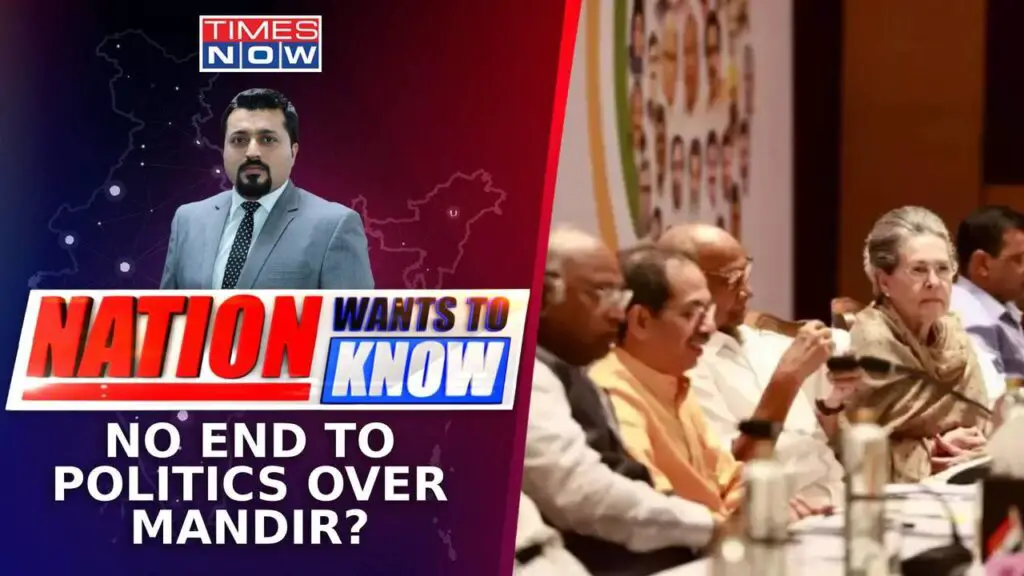In the latest episode of Nation Wants To Know, anchor Madhavdas G. explores the ongoing political landscape leading up to the consecration of the Ram Mandir. West Bengal Chief Minister Mamata Banerjee made headlines during her ‘Sampriti Rally’ with a strong statement vowing not to forgive those who aid the Bharatiya Janata Party (BJP) in the state. Swearing on ‘Allah’, Banerjee expressed her unwavering determination to combat the BJP’s influence. The timing of her rally, coinciding with Prime Minister Narendra Modi’s Ram Mandir ‘pran pratishtha’ event, adds a significant political dimension to the ongoing dynamics in West Bengal. Additionally, there are doubts from the Congress regarding Prime Minister Modi’s 11-day anusthan. The episode also features insightful analysis from political analyst Prof. Manojit Mandal, who sheds light on the controversy surrounding Mamata Banerjee’s statement.
Mamata Banerjee’s ‘Sampriti Rally’ and Vow Against BJP
During her ‘Sampriti Rally’, Mamata Banerjee delivered a powerful message, vowing not to forgive those who aid the BJP in West Bengal. Her swearing on ‘Allah’ underscored her unwavering determination to combat the influence of the BJP in the state. This bold stance by the Chief Minister has added further intensity to the political landscape in West Bengal, especially with the timing of her rally coinciding with Prime Minister Narendra Modi’s Ram Mandir ‘pran pratishtha’ event.
Congress Doubts Prime Minister Modi’s 11-Day Anusthan
In addition to Mamata Banerjee’s strong stance, the Congress has raised doubts regarding Prime Minister Modi’s 11-day anusthan. This development adds another layer of complexity to the political dynamics in West Bengal, as the state becomes a focal point for political discussions leading up to the Ram Mandir consecration.
Insights from Political Analyst Prof. Manojit Mandal
Political analyst Prof. Manojit Mandal joined the discussion to provide valuable insights into the controversy surrounding Mamata Banerjee’s statement. Prof. Mandal clarified that Banerjee was referring to ‘cowards’ when she used the term ‘Kayar’, not ‘Kafir’, emphasizing that the issue should not be politicized. His analysis adds depth to the conversation, shedding light on the intricacies of the political discourse surrounding this topic.
Conclusion
The ongoing political developments in West Bengal, particularly revolving around Mamata Banerjee’s bold stance and the doubts raised by the Congress, have injected a heightened sense of political fervor in the state. The Ram Mandir ‘pran pratishtha’ event and the ensuing political dynamics continue to shape the narrative, making it a critical point of discussion in the realm of Indian politics. As these events unfold, it remains crucial to stay informed and engaged with the evolving political landscape in West Bengal.
For more information and updates on the political developments in West Bengal, you can visit West Bengal Government. Stay tuned for the latest news and insights on this pressing issue.

